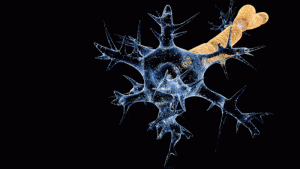 The December 2019 CaHRU/LIH Improvement Science and Research Methods Seminar was given by Despina Laparidou, Dr Joseph Akanuwe and Prof Niro Siriwardena of CaHRU on researching rare diseases. A rare disease is defined as a life-threatening or chronically debilitating disease affecting 5 or fewer people in 10,000. There are between 6,000 and 8,000 known rare diseases and around five new rare diseases are described in the medical literature each week. In the UK, 1 in 17 people or 6% of the population are affected by a rare disease which means 3.5 million people will be affected at some point in or throughout their lives.
The December 2019 CaHRU/LIH Improvement Science and Research Methods Seminar was given by Despina Laparidou, Dr Joseph Akanuwe and Prof Niro Siriwardena of CaHRU on researching rare diseases. A rare disease is defined as a life-threatening or chronically debilitating disease affecting 5 or fewer people in 10,000. There are between 6,000 and 8,000 known rare diseases and around five new rare diseases are described in the medical literature each week. In the UK, 1 in 17 people or 6% of the population are affected by a rare disease which means 3.5 million people will be affected at some point in or throughout their lives.
 Rare diseases as a group are therefore common and important, not only for specialists, but also for general practitioners, who will see people with rare conditions often. The problem for patients with rare diseases is that they are often misdiagnosed, poorly understood and the conditions are under-researched. The seminar considered how to research such conditions in a way that will lead to improving care and experience of care of those affected. The speakers discussed the problem of rare disease, the challenges of researching these and how these challenges were addressed in a recent series of studies on Guillain-Barré syndrome conducted by a team from CaHRU, LIH, Lincoln International Business School and the School of Psychology.
Rare diseases as a group are therefore common and important, not only for specialists, but also for general practitioners, who will see people with rare conditions often. The problem for patients with rare diseases is that they are often misdiagnosed, poorly understood and the conditions are under-researched. The seminar considered how to research such conditions in a way that will lead to improving care and experience of care of those affected. The speakers discussed the problem of rare disease, the challenges of researching these and how these challenges were addressed in a recent series of studies on Guillain-Barré syndrome conducted by a team from CaHRU, LIH, Lincoln International Business School and the School of Psychology.
 Possible methods vary depending on funder requirements, clinical condition, previous research, knowledge gaps and agreed aims of the research. The methods described included a metasynthesis of qualitative studies, a new qualitative study and an online questionnaire study all exploring the experiences of care for people with Guillain- Barré syndrome, Chronic Inflammatory Degenerative Polyneuropathy and other variants of these condition. In order to be successful, such studies need to use methods that involve existing data and accessing participants remotely, particularly if resources are limited. It was emphasised that working with patient groups and charities could help recruit participants and in future linking with national experts was important to develop such studies.
Possible methods vary depending on funder requirements, clinical condition, previous research, knowledge gaps and agreed aims of the research. The methods described included a metasynthesis of qualitative studies, a new qualitative study and an online questionnaire study all exploring the experiences of care for people with Guillain- Barré syndrome, Chronic Inflammatory Degenerative Polyneuropathy and other variants of these condition. In order to be successful, such studies need to use methods that involve existing data and accessing participants remotely, particularly if resources are limited. It was emphasised that working with patient groups and charities could help recruit participants and in future linking with national experts was important to develop such studies.
